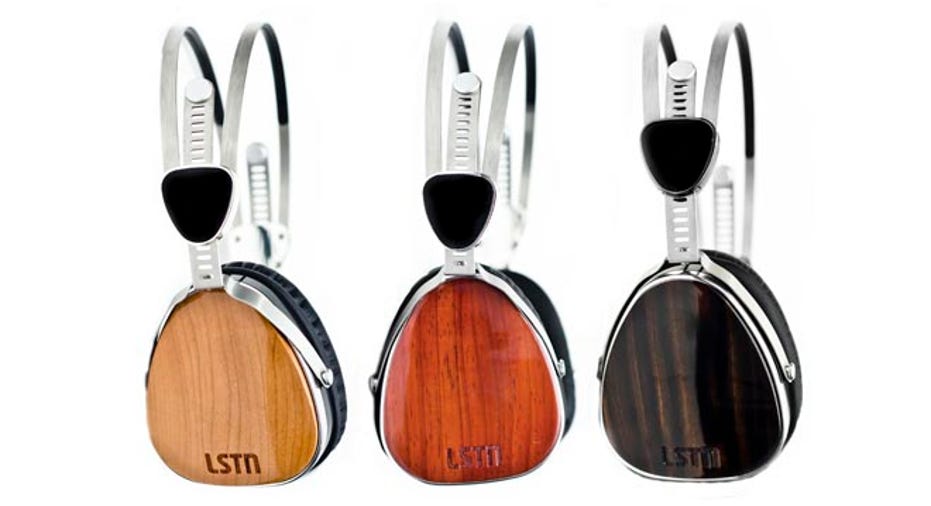The Gift of Hearing Wrapped in Headphones

Small Business Spotlight: LSTN Headphones, Twitter: @LSTN
Who: Co-founders Bridget Hilton and Joe Huff
What: A company that makes and sells handcrafted wood headphones for the hearing impaired with the aim of “changing the world through the power of music.”
LSTN offers two types of headphones – the Troubadours and the Fillmores – and one model of ear buds (the Bowerys). The headphones, which are handcrafted from reclaimed wood, typically go for $100 to $150 and the ear buds are priced at $50. They are sold at Whole Foods (NASDAQ:WFM), Nordstroms, Urban Outfitters and Barnes & Noble (NYSE:BKS), among other locations.
For every pair sold, through a partnership with the Starkey Hearing Foundation, the company helps restore hearing to a person in need.
When: October 2012 (soft launch), April 2013 (official launch)
Where: West Hollywood, Calif.
How: A little over a year ago, Bridget Hilton says she learned about the Starkey Hearing Foundation and decided she wanted to use her passion for music to affect social change. She had a background in music having worked at Universal Music and Warner Music Group, so the big hurdle would be to launch her own company.
“The craziest thing for me would be to never be able to hear music again, so giving music to somebody for the first time is the coolest thing in the world,” Hilton says.
Around that time, Hilton met LSTN’s co-founder Joe Huff, who had been working in enterprise and distribution, and had been involved with TOMS as well.
“There are few things we can do to help change someone’s life overnight,” Huff says. “[Hearing loss] is not an untreatable problem, it’s more about access.”
There are more than 275 million people around the world who are hearing impaired, according to the World Health Organization, and of the children in schools for the deaf, 95% can be helped with just a hearing aid, according to the Starkey Hearing Foundation. Each year, the foundation gives 100,000 hearing aids to people in need. On a recent mission trip to Peru, LSTN and the foundation fitted over 10,000 people with hearing aids.
Most recently, LSTN launched a music program working with artists from all ends of the spectrum to increase awareness about hearing impairment worldwide.
“Our core belief is everyone really cares, they just don’t know how to get involved,” Huff says. “But we strongly believe to really affect change you have to have a really great product, that way it’s compelling and people want to participate in what you do.”
Biggest challenge: “As a startup with very little money, giving all your money to charity is the hard part,” Huff says. “You really have to believe in what you do to take on a business like this.”
To which Huff adds, “But being a young, scrappy company keeps us nimble and lets us run things well.”
One moment in time: On a recent mission trip to Peru, LSTN fitted thousands of people in need with hearing aids. One of those people was a young girl who had traveled hours with her mom to get hearing care as an eighteenth birthday present. Hilton had the privilege of fitting the young girl and says the experience was incredibly emotional.
“Watching her face as she heard her mom say ‘I love you’ for the first time was crazy,” Hilton says. “Doing [the mission] was just so much more powerful than talking about it.”
The video of the fitting is featured on LSTN’s website.
Best business advice: For Hilton, it’s just a matter of getting started.
“Starting is the hardest part,” Hilton says. “So many people say they wish they could do what we do and they can; we don’t have money, we don’t have anything special about us. We just do what we love.”
Huff agrees.
“Start something that has purpose [and] you’ll always be happy,” says Huff.



















